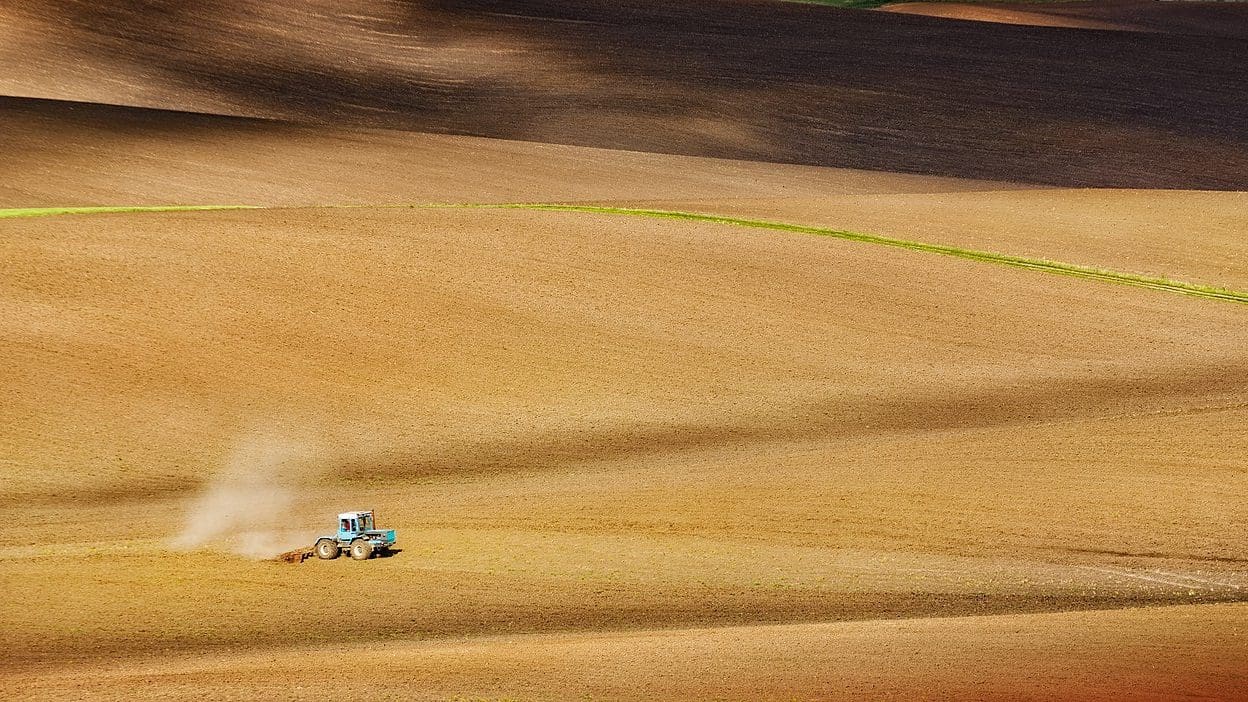Last week, four East-Central European countries, Poland, Hungary, Slovakia, and Bulgaria introduced temporary bans on food product imports from Ukraine. While Romania has not imposed such a ban, it did join the other four countries in demanding action from the EU to address concerns related to the large quantities of agricultural products arriving from Ukraine to the region.
Poland was the first to raise concerns about the glut of Ukrainian import crops. Local farmers started to protest the large quantities of grain coming into their country back in mid-February. They were raising their objections to both the effect the large quantities of foodstuff have on the prices of agricultural products, as well as the low quality of Ukrainian imports. Soon after introducing the ban, Poland and Ukraine reached an agreement about letting imports pass through Polish lands, with the necessary measures to stop these agricultural products from being stuck in the country. Since the new agreement came into force on Friday, products from Ukraine are sealed at the border, and are allowed to pass through (either from border to border or to seaports when the products are loaded onto ships) only in convoys.
The local agricultural workers’ disappointment with Ukrainian imports was on the agenda in early April too, when President Zelenskyy visited Warsaw. To ease the pressure and appease the farmers who promised to organise a ‘surprise’ for the Ukrainian President, the frequently criticised Minister of Agriculture and Rural Development Henryk Kowalczyk resigned on the day Zelenskyy arrived in Poland.
During Zelenskyy’s trip, the issue of imports came up and was negotiated. However, apparently, the discussions were not successful,
as just a couple of weeks after Zelenskyy’s visit, Warsaw did introduce a ban on Ukrainian food products. The Law and Justice party might have been compelled to urgently address these concerns because its electoral base is mostly from the rural areas of Poland. PiS is in need of these voters’ support as elections are soon coming up.
Poland was not the only one to introduce a ban, however. On 15 April, Hungary too imposed restrictions on agricultural imports from Ukraine, which are scheduled to be lifted on 30 June. The Hungarian restrictions extend to grain, fruits, vegetables, oilseeds, dairy, beef, pork and eggs—as Hungarian Conservative has reported.
Poland and Hungary announced the ban during the weekend, while Bratislava followed suit on Monday, 17 April. The Slovakian Minister of Rural Development justified the ban chiefly by citing public health concerns. Bratislava claimed to have detected pesticides in the Ukraine-exported products that are not permitted within the EU.
Some experts believe that the use of these chemicals allows Ukrainian agriculture to significantly undercut the EU in costs.
By Wednesday of the same week, Bulgaria also announced a ban on Ukrainian agricultural goods. There have been protests against Ukrainian foodstuffs in Romania too, however, Bucharest did not introduce any measures to stop the imports so far. Romania is not only affected through on-land transportation routes, but also through seaborne shipments—over 12 million metric tonnes of Ukrainian grains were shipped through the port of Constanta on the Black Sea since early 2022. Overall, it is estimated that the five protesting Central European countries have lost a combined 417 million EUR to the Ukrainian exports and their harmful economic effects.
Part of the reason why Central Europe has been flooded with Ukrainian crops is the cutting off of Black Sea export routes for Ukraine.
While Ukraine and Russia did reach an agreement about allowing for some shipments on sea, Kyiv regularly accuses Moscow of slowing down these export routes with its inspections. On top of the already existing difficulties with regard to the Black Sea routes, the agreement between Moscow and Kyiv is about to expire on 18 May, currently with no extension in sight. The Kremlin insists on extending the deal only on the condition the EU lifts sanctions on Russian agricultural products.
As it is difficult to export foodstuffs on ships, Ukraine turned to on-land routes that lead through Central Europe. The initial idea was to use the neighbouring countries only as transit zones and export the products to Western Europe and beyond. However, due to some logistical difficulties, much of the grain got stuck in the region, considerably pushing down the prices. Before the ban, 10 per cent of Ukraine’s total food export passed through Poland, while six per cent through Hungary. In Poland alone, that amounted to around 3 million metric tonnes of Ukrainian grain.
Once the bans were introduced by the Central European member states, the European Union—more specifically, the European Commission—immediately spoke up against the decision. The EC argued that it is not up to the individual member states to decide on these questions, and coordination is needed on the EU level. Until the invasion in 2022, Ukrainian agricultural products were subject to tariffs and quotas under the EU-Ukraine trade agreements of 2016. Once the invasion started, however, these impositions were lifted as part of an initiative to create ‘solidarity lanes’ for Ukrainian exports. While earlier the EC proposed to prolong the suspension of trade barriers on Ukrainian products, due to the pressure, the EU started to work on restrictions of its own on Ukrainian imports.
The EU measures, which are expected to last until the end of June, would allow Ukrainian exports into the affected Central European nations only if they are then immediately transported into other countries. The EU is also considering 100 million EUR worth of aid to support local farmers hit by the falling prices. This aid would come in addition to already paid out subsidies. Back in March, the EC allocated over 29 million EUR to Poland, almost 17 million EUR to Bulgaria, and 10 million EUR to Romania to compensate for the damage Ukrainian foodstuff caused to local producers. While the earlier EU package left Slovakia and Hungary out, hopefully, the new aid package will not. Polish Prime Minister Mateusz Morawiecki finds these support measures by the EC insufficient. For comparison, he pointed out that his government alone has already approved 2.38 USD billion in aid just to help domestic agriculture to survive.
The current pressure Central European markets are experiencing due to the income of cheap Ukrainian food products would be even greater if Kyiv joined the EU. If Ukraine were to become an EU member state, the country would be the largest recipient of Common Agricultural Policy (CAP) funding with an estimated 386 billion EUR in subsidies. While currently, the average farmland in the EU covers 16 hectares, they are on average 1,000 hectares large in Ukraine, as POLITICO wrote.
Current EU member states need to ask themselves if they are ready to expose their domestic agriculture to such competition within the single market if Ukraine joins the EU in two years,
at the speed Kyiv officials want.
Related articles:








